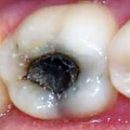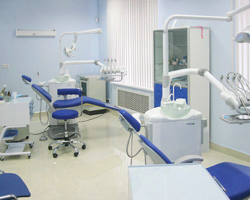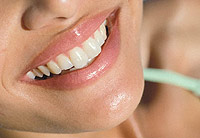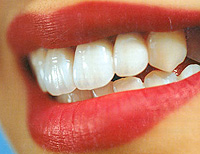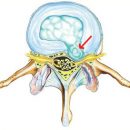What dentures are better to put and why. Removable and non-removable dentures, their advantages and disadvantages, according to dentists.
Content
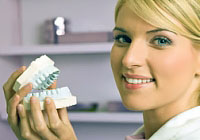 Loss of teeth in time expects everyone, so we all sooner or later encounter the choice of dentures. Modern dentistry offers a wide range of prostheses. The choice depends on the state of the teeth and the patient's jaws, its individual wishes and financial capabilities. With the loss of teeth, the prostheses perform a number of important functions: restoration of the aesthetics of the dentition due to its similarity with natural teeth, a worthy functional replacement of a lost tooth and the absence of inconvenience. Dental prostheses are removable and non-removable. Removable prostheses are mainly the choice of senior people (elderly) age. Young people prefer non-removable types of prostheses.
Loss of teeth in time expects everyone, so we all sooner or later encounter the choice of dentures. Modern dentistry offers a wide range of prostheses. The choice depends on the state of the teeth and the patient's jaws, its individual wishes and financial capabilities. With the loss of teeth, the prostheses perform a number of important functions: restoration of the aesthetics of the dentition due to its similarity with natural teeth, a worthy functional replacement of a lost tooth and the absence of inconvenience. Dental prostheses are removable and non-removable. Removable prostheses are mainly the choice of senior people (elderly) age. Young people prefer non-removable types of prostheses.
The choice of the optimal type of prostheses should be carried out with the attending dentist. It will appreciate the condition of your oral cavity from a professional point of view and will offer the best options for you for dental prostheses. The choice will affect the choice that you are haunting: Want you to put a prosthesis for beauty or just get a comfortable and practical design. In case of inspection, the dentist may limit the choice if you have contraindications to certain types of dentures. If you have no pair of teeth, then the doctor can offer an implantation. The price of prosthetics depends on the view of the product and the material you have chosen and the material from which it will be done.
Removable dentures
Removable prostheses include the following types of products:
- Acrylic lamellar type prostheses;
- burealed prostheses (including partial burealed prosthesis);
- nylon (silicone) prostheses;
- fully removable prostheses;
- Conditionally removable prostheses;
- Temporary removable prostheses — Immediat prostheses.
Acrylic prostheses are characterized by cheap, ease of use and care. The disadvantages of this type: the solid material rubs the gums and promotes the formation of small wounds, the taste of the sensitivity is disturbed (such prostheses close most of the sky along with taste receptors), prostheses are often breaking enough. With an increased vomit reflex provoke nausea and violate diction. Burel dentures are attached to hooks to healthy teeth or implants. Their basis is the metal arc on which artificial gums (from plastics) and ceramic teeth. The advantages of global prostheses are their durability (more than 5 years), strength and lack of need for frequent removal. Disadvantages of these prostheses: hooks can spoil aesthetic appearance and leave the taste of metal in the mouth. Positive qualities of nylon (silicone) prostheses: high elasticity, comfortable fastening, long-term (from 5 to 7 years old), do not irritate gums and look natural. The minuses are uneven load distribution with chewing, high price, care features and exclusion from the diet of some products.
Non-removable dentures
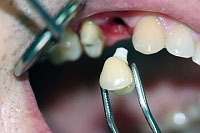
Examples of non-removable dentures are the following products:
- ceramic inserts in the cavity of the tooth;
- ceramics without metal;
- Metal ceramics;
- glass ceramics;
- microprostheses;
- pins;
- dental crowns;
- dental bridge;
- Dental implants.
Most cases of prosthetics are carried out using ceramic tabs. Dental ceramics prostheses without adding metal almost indistinguishable from natural teeth. When using metal ceramics, the base is made of metal, and the surface layer consists of ceramics. The strength of the glass ceramics is small. If the tooth is strongly destroyed, but its roots are durable and reliable, then a good solution will be microprothesis, due to which the restoration of the dental crown is carried out. Microprosthetics can be performed using pins.
Consult with a dentist to choose for yourself the most suitable dentures.

